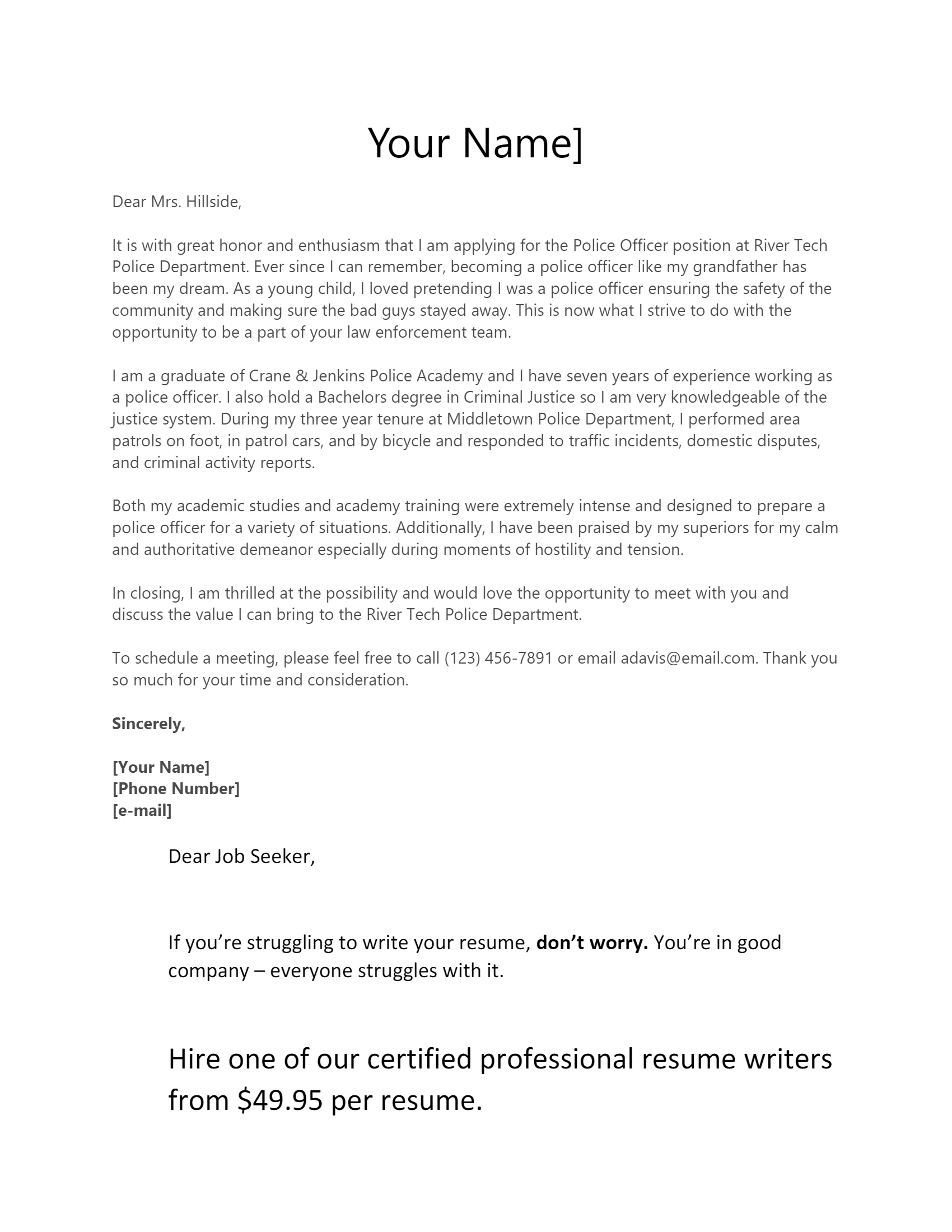Why a Law Enforcement Cover Letter is Crucial
In the competitive field of law enforcement, a well-crafted cover letter can be the key to unlocking your dream career. It’s not just a formality; it’s your first impression, your chance to make a lasting impact, and a critical tool in demonstrating why you’re the ideal candidate. A cover letter provides a unique opportunity to go beyond the bullet points of your resume and showcase your personality, passion, and relevant experiences in a compelling narrative. It allows you to connect with the hiring manager on a personal level, highlighting your suitability for the role and the specific agency. Failing to provide a strong cover letter can mean your application is overlooked.
Understanding the Purpose of a Cover Letter
The primary purpose of a cover letter is to introduce yourself, express your interest in a specific position, and persuade the hiring manager to review your resume. Think of it as a marketing document for your skills and qualifications. It should succinctly explain why you’re a great fit for the role and the agency, demonstrating your understanding of their mission and values. A well-written cover letter should complement your resume, expanding on key aspects of your experience and achievements while also addressing any specific requirements mentioned in the job posting. It should convey your enthusiasm, professionalism, and your genuine desire to serve and protect the community.
Key Components of a Law Enforcement Cover Letter
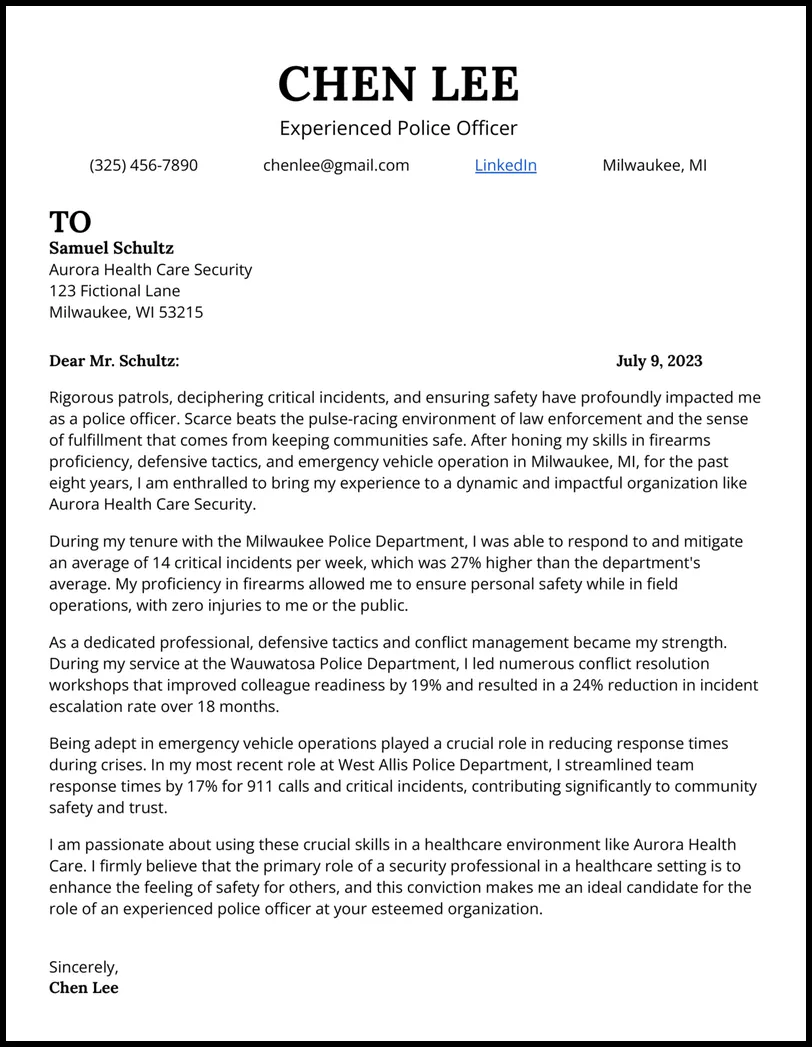
A successful law enforcement cover letter consists of several essential components, each contributing to its overall effectiveness. These elements work together to create a clear, concise, and persuasive narrative that captures the hiring manager’s attention and makes a strong case for your candidacy. From the initial contact information to the final expression of gratitude, each part plays a vital role in showcasing your suitability for the position and demonstrating your professionalism. Ignoring even one of these components can weaken the impact of your application, potentially leading to it being overlooked by the hiring committee.
Contact Information
Begin your cover letter with your full name, address, phone number, and professional email address. Ensure this information is accurate and up-to-date. Also, include the date and the hiring manager’s name (if known), title, and the agency’s address. Using the hiring manager’s name is recommended, as it shows you’ve taken the time to research the agency and personalize your application. If you’re unsure of the hiring manager’s name, a general title like ‘Hiring Manager’ is acceptable, but make an effort to find the correct contact.
Opening Statement
Start with a strong opening statement that immediately grabs the reader’s attention. Clearly state the position you’re applying for and where you saw the job posting. Express your enthusiasm for the opportunity and briefly mention why you’re interested in the agency. A compelling opening should highlight your understanding of the agency’s mission and your commitment to public service. Avoid generic phrases; instead, aim for a personalized approach that reflects your genuine interest and passion for law enforcement.
Highlighting Relevant Skills and Experience
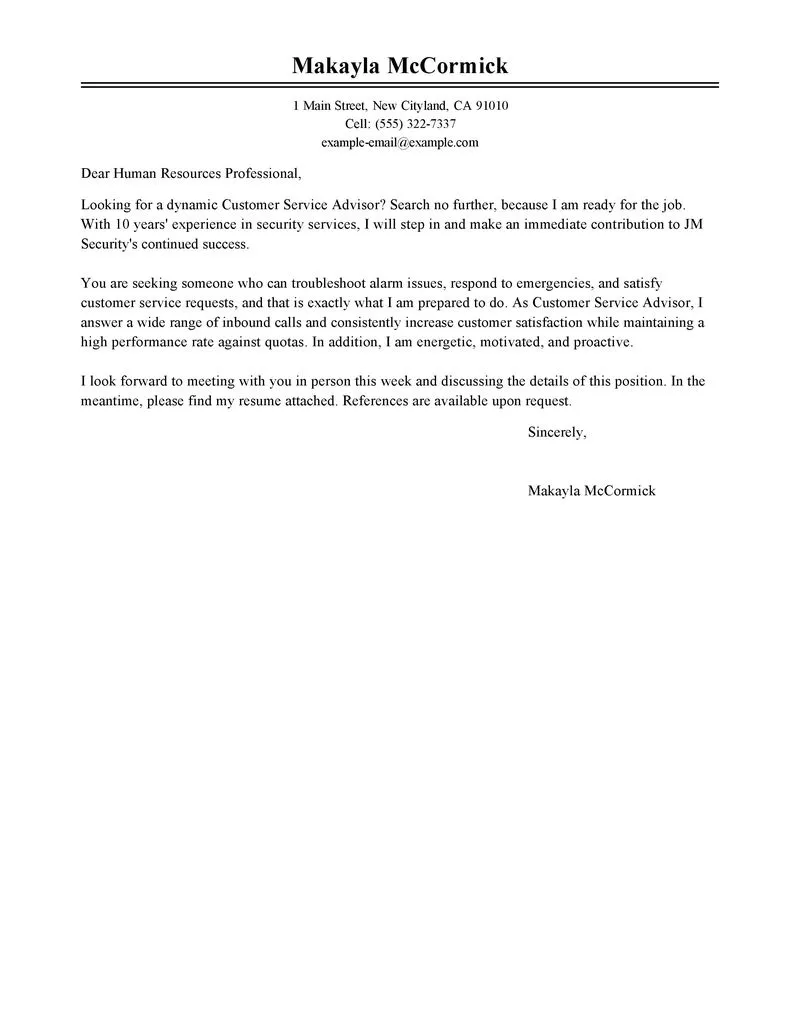
In the main body of your letter, highlight the skills and experience that align with the job requirements. Refer to the job description and identify the key qualifications. Provide specific examples of how your past experiences demonstrate these skills. Use action verbs to describe your accomplishments and quantify your achievements whenever possible. Focus on experiences that directly relate to the role, such as experience with investigations, community outreach, conflict resolution, or any specialized training you have. Ensure each skill or experience is clearly articulated and linked to the needs of the agency.
Showcasing Accomplishments and Achievements
Go beyond simply listing your responsibilities. Showcase your accomplishments and achievements in previous roles. Use the STAR method (Situation, Task, Action, Result) to provide context and demonstrate the impact of your actions. For example, instead of saying ‘Managed a team,’ describe a specific project where you led a team to successfully complete a task and the positive outcome. Quantify your achievements whenever possible (e.g., ‘Reduced crime rates by 15%’). Highlighting your accomplishments proves you can deliver results and contribute to the agency’s goals.
Demonstrating a Strong Work Ethic and Values
Law enforcement agencies value integrity, honesty, and a strong work ethic. Explicitly state these qualities in your cover letter. Provide examples of situations where you demonstrated these values, such as handling difficult situations with professionalism or going above and beyond in your previous roles. Show how your personal values align with the agency’s mission and core principles. This will demonstrate that you are not only qualified but also a good fit for the department. Relate your personal values to the agency’s values, showing a strong alignment.
Tailoring the Cover Letter to the Specific Job
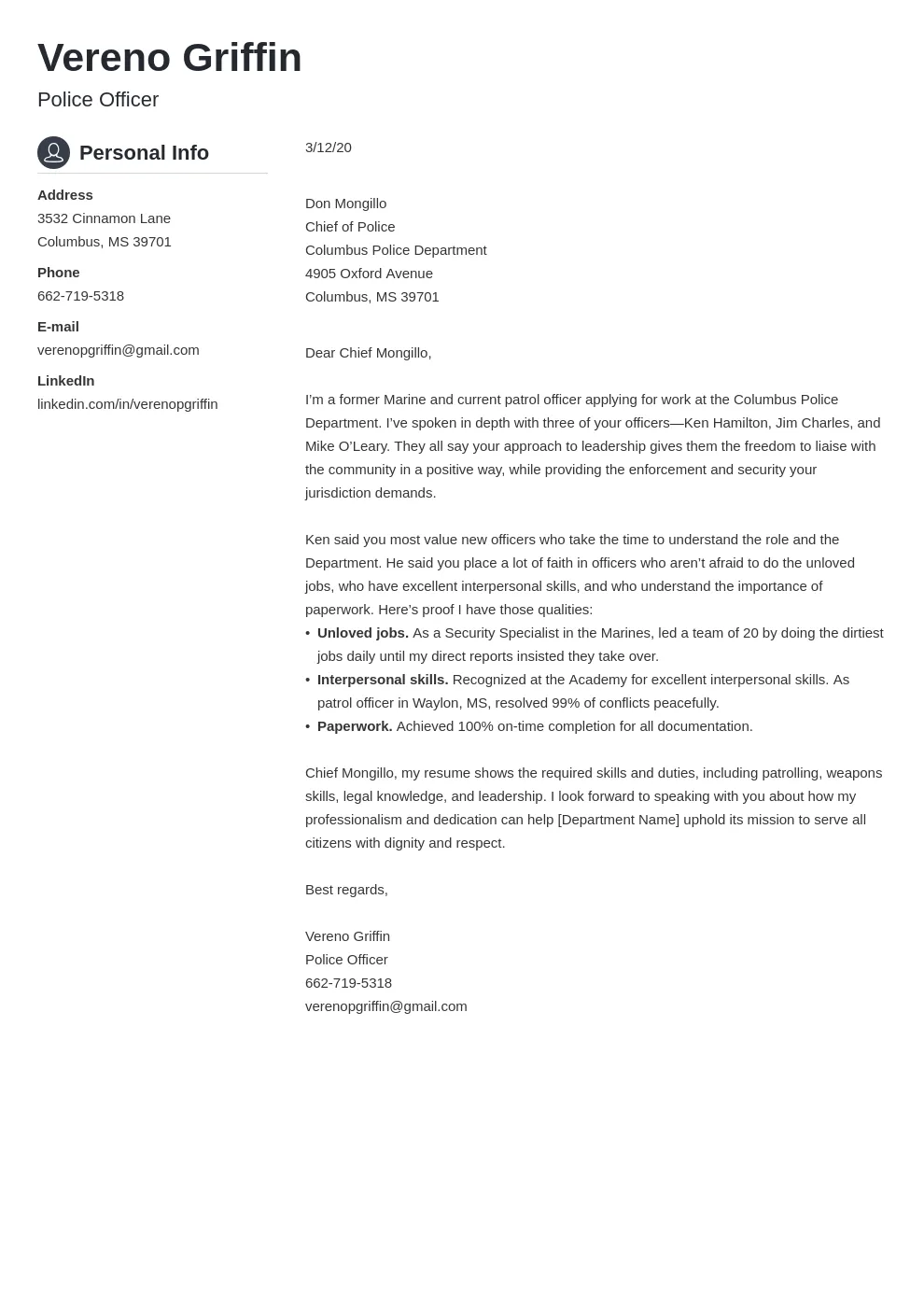
Customize your cover letter for each job application. Don’t use a generic template. Research the agency and the specific role to understand their needs and priorities. Address the key requirements and demonstrate how your skills and experience align with them. This level of personalization shows you’re genuinely interested in the opportunity and have taken the time to understand the agency’s specific needs. Review the job description and address each of the critical requirements directly in your cover letter. By tailoring your cover letter, you show the hiring manager you’re serious about the role.
Researching the Law Enforcement Agency
Before you start writing, conduct thorough research on the law enforcement agency. Understand their mission, values, and recent initiatives. Visit their website, read their annual reports, and follow their social media accounts. Tailor your cover letter to reflect your understanding of the agency’s specific needs and priorities. This demonstrates your genuine interest and commitment. Mention specific programs, projects, or values that resonate with you and explain why you want to be a part of their team. This research adds a significant layer of personalization and can set you apart from other candidates.
Matching Skills to Job Requirements
Carefully review the job description and identify the required skills and qualifications. Create a skills matrix to map your skills to the job requirements. Use the job description as a roadmap for structuring your cover letter. Highlight examples where you’ve successfully utilized these skills. If the job posting emphasizes specific skills, make sure to dedicate sections to address them, offering examples and quantifying your successes. This targeted approach makes it easy for the hiring manager to see how your skills align with the agency’s needs.
Using Action Verbs Effectively
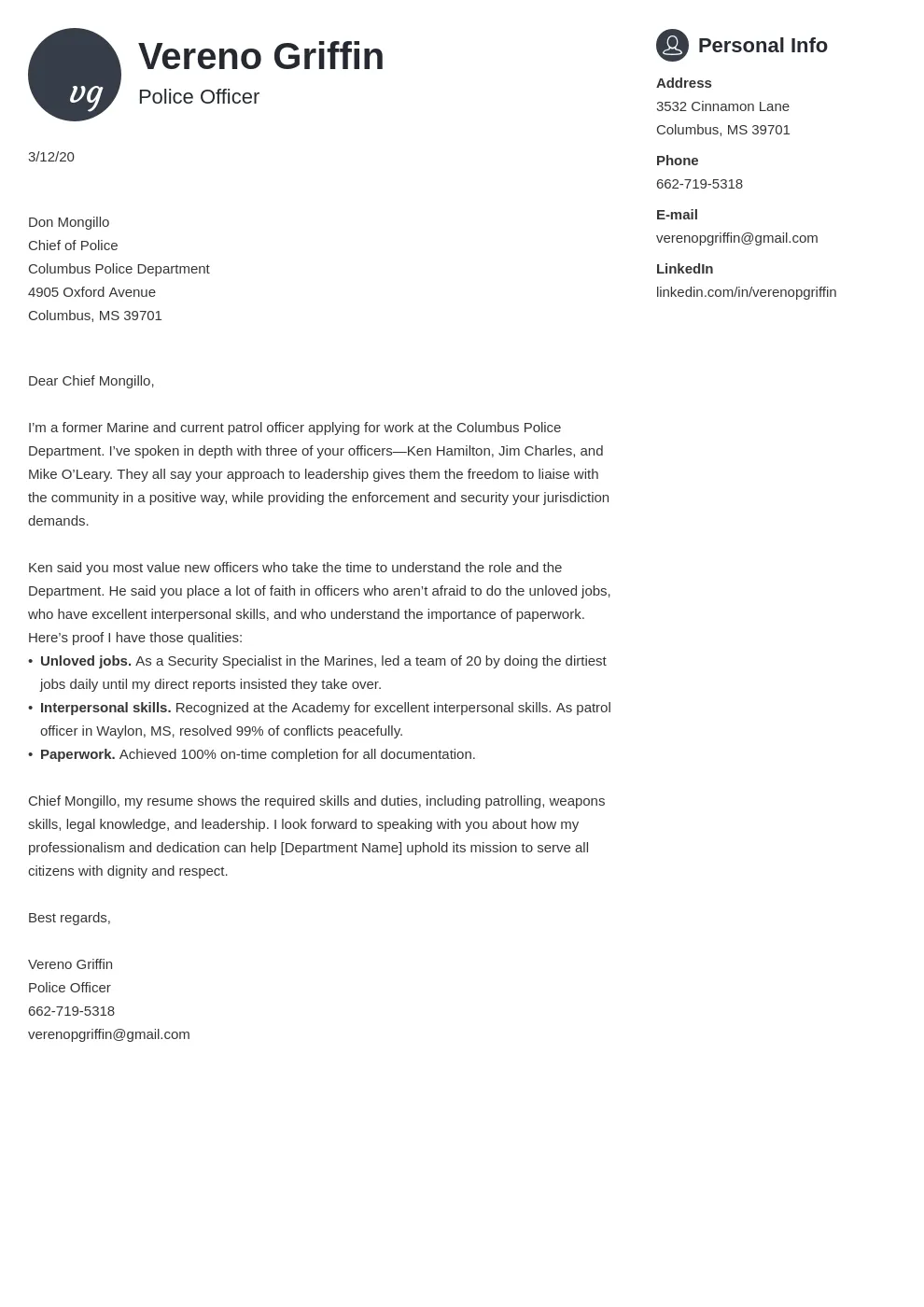
Use strong action verbs to describe your accomplishments and responsibilities. Instead of using passive language, use verbs that convey action and results. Start your bullet points and descriptions with impactful verbs like ‘Led,’ ‘Managed,’ ‘Investigated,’ ‘Implemented,’ ‘Resolved,’ ‘Improved,’ or ‘Achieved.’ Action verbs make your cover letter more engaging and demonstrate your ability to take initiative and achieve results. This makes your cover letter much more dynamic and shows your proactive approach to work.
Formatting and Structure
The formatting and structure of your cover letter should be clean, professional, and easy to read. Use a standard business letter format with a clear font, appropriate margins, and spacing. Keep your paragraphs concise and well-structured, and use bullet points to highlight key skills and achievements. A well-formatted cover letter is a sign of professionalism and attention to detail. Make sure to use a readable font and maintain consistency throughout the document to ensure a positive visual impression.
Choosing the Right Font and Font Size
Select a professional and readable font, such as Times New Roman, Arial, or Calibri. Use a font size of 11 or 12 points for the body text. Ensure the font is consistent throughout the letter, including your contact information and any headings. A consistent and easily readable font will make it easier for the hiring manager to read and absorb the information. Avoid overly decorative or unusual fonts, as they can distract from your message.
Proofreading and Editing for Errors
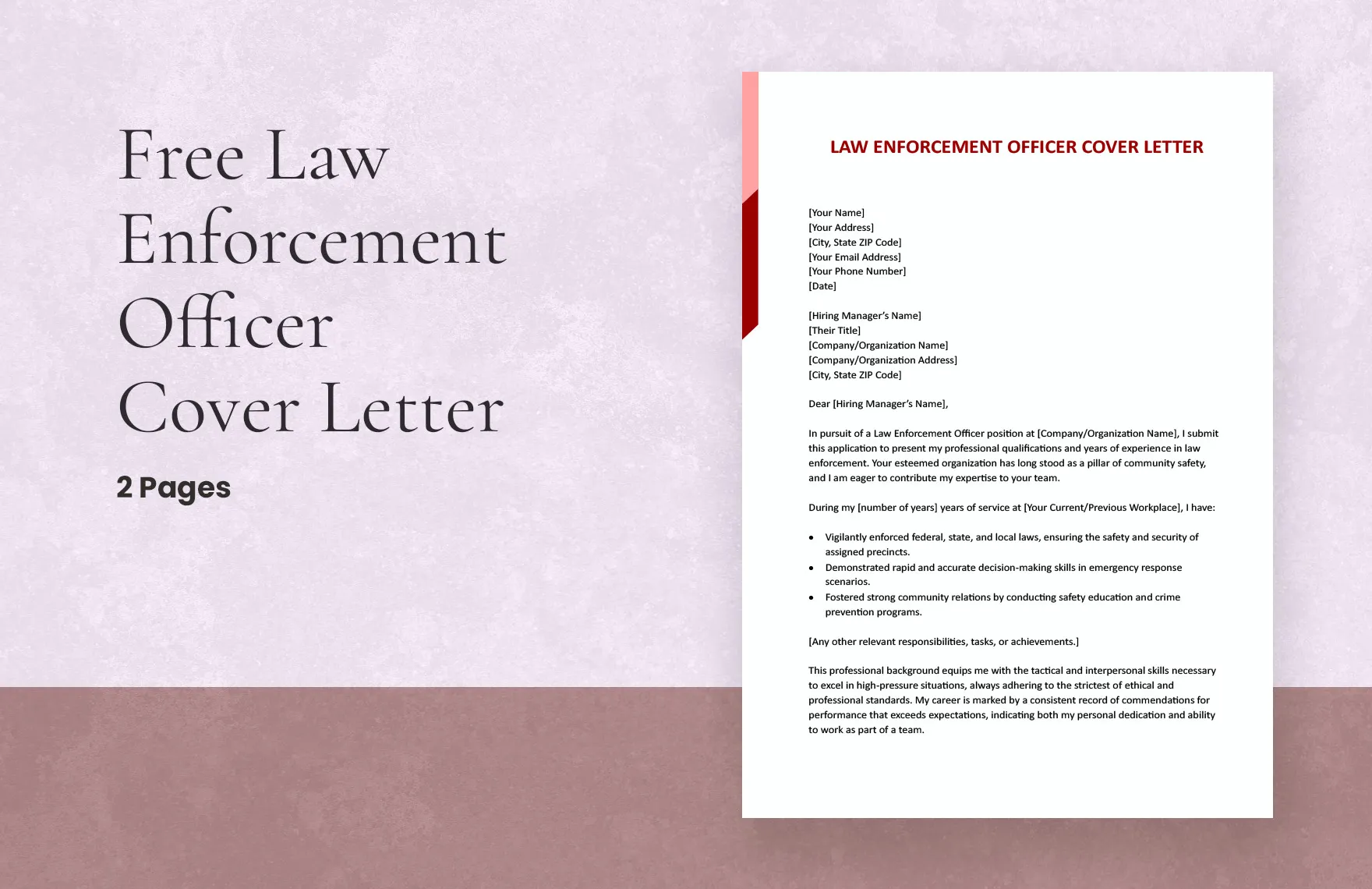
Thoroughly proofread and edit your cover letter for any grammatical errors, typos, or inconsistencies. Errors can undermine your credibility and make a negative impression. Use a grammar checker and ask a friend or family member to review your letter. A fresh pair of eyes can catch mistakes you might have missed. Proofread multiple times, as it’s easy to overlook errors. A polished, error-free cover letter demonstrates your attention to detail and professionalism. Make sure all names, titles, and dates are correct.
Common Mistakes to Avoid
There are several common mistakes that can significantly weaken your cover letter and reduce your chances of getting hired. Understanding and avoiding these pitfalls is crucial for crafting an effective and compelling application. Avoiding these common errors will make your cover letter more professional and engaging for hiring managers. Always review your cover letter to ensure you avoid these pitfalls.
Generic Cover Letters
Avoid using a generic cover letter that can be sent to any employer. Tailor each cover letter to the specific job and agency. A generic letter shows a lack of interest and a failure to understand the agency’s needs. Personalize your letter by mentioning the agency’s mission, values, or recent initiatives. Demonstrate that you’ve researched the agency and understand the role. Generic letters often fail to capture the hiring manager’s attention because they lack a specific focus.
Exaggerating Qualifications
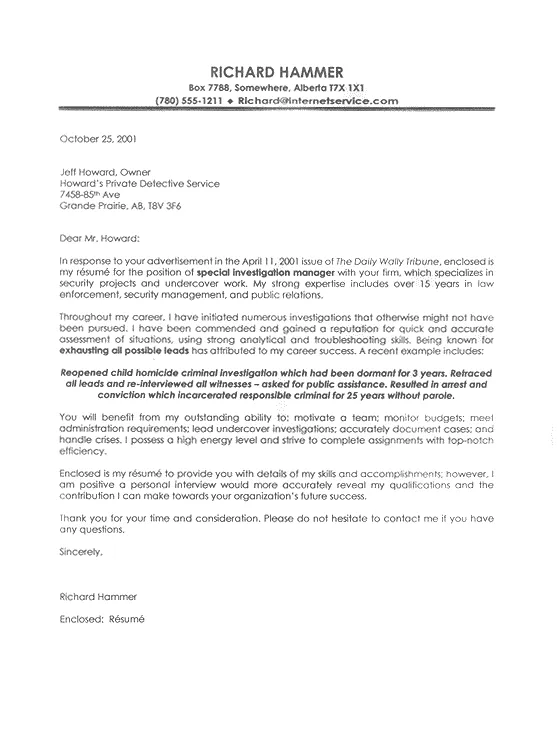
Never exaggerate your qualifications or experience. Be honest and accurate in your descriptions. Exaggerating your skills can backfire during the interview process and damage your credibility. Provide truthful examples of your accomplishments and skills. If you are found to be dishonest, it can disqualify you from the hiring process. Honesty and integrity are paramount in law enforcement.
Ignoring the Specific Job Requirements
Carefully review the job description and address each of the key requirements. Ignoring these details shows a lack of attention and can result in your application being dismissed. Tailor your cover letter to highlight the skills and experience the employer is seeking. Show how your experience aligns with the specific demands of the job. Ensure you directly address all the key qualifications outlined in the job posting.
Closing the Cover Letter
The closing of your cover letter should reiterate your interest and express your enthusiasm for the opportunity. It’s your last chance to leave a positive impression. Make sure to thank the hiring manager for their time and consideration and provide your contact information. A well-crafted closing should leave the hiring manager feeling confident that you are the right candidate.
Expressing Enthusiasm and Interest
Reiterate your interest in the position and the agency. Express your enthusiasm for the opportunity to contribute to the agency’s mission. A positive closing shows your passion for law enforcement. Let the hiring manager know that you are eager to learn more about the opportunity. This enthusiasm can leave a lasting positive impression.
Providing Contact Information
Reiterate your contact information in the closing to ensure the hiring manager can easily reach you. Include your phone number and email address. Make sure your voicemail is set up with a professional greeting. Double-check that all contact information is accurate and up-to-date. This makes it easy for the agency to contact you for an interview.
Thanking the Hiring Manager
Thank the hiring manager for their time and consideration. Show your appreciation for their review of your application. A polite closing is a sign of professionalism and respect. Make sure to end on a positive note, reinforcing your interest in the position.
Example Cover Letter for Law Enforcement
The structure of a law enforcement cover letter should be as follows: Your Contact Information, Date, Hiring Manager’s Information, Salutation, Opening Paragraph, Body Paragraphs (Highlighting Skills and Experience), Closing Paragraph (Expressing Interest, Thank You, Contact Info), and Closing. A proper example will serve as a template, so make sure to customize the letter to fit you. Make sure you use action verbs and tailor the language to reflect your personality. Reviewing examples can guide you in structuring your letter effectively.
Tips for a Successful Cover Letter
Following these tips can significantly increase the effectiveness of your law enforcement cover letter. These tips emphasize the importance of tailoring your application to the specific role and agency and highlight best practices for showcasing your skills and achievements. Using these tips will help you create a more compelling and effective cover letter that gets noticed. Remember to personalize your letter.
Highlighting Soft Skills
In addition to hard skills, highlight your soft skills, such as communication, teamwork, problem-solving, and leadership. Provide examples of situations where you demonstrated these skills. Law enforcement requires a blend of technical skills and interpersonal abilities. Highlight your ability to communicate, work with others, and resolve conflicts. The ability to connect with people and solve problems is as important as technical expertise.
Quantifying Achievements
Quantify your achievements whenever possible. Use numbers and data to demonstrate the impact of your actions. For example, instead of saying ‘Improved efficiency,’ say ‘Improved efficiency by 15% through the implementation of a new system.’ Quantifiable results show you can deliver results. Quantifying accomplishments helps to show the tangible results and the value you bring to the agency.
Seeking Feedback and Review
Ask a friend, family member, or career advisor to review your cover letter before submitting it. A fresh perspective can identify areas for improvement and catch any errors. Getting feedback will help you strengthen the letter and ensure your message is clear and effective. Having another person review your letter will allow you to address any areas for improvement before submitting the application.
Final Thoughts
Writing a strong law enforcement cover letter is essential for making a positive first impression and securing your dream job. By following these guidelines and tailoring your letter to each specific job opportunity, you can significantly increase your chances of getting noticed. Focus on highlighting your skills, experience, and values, while demonstrating your enthusiasm and understanding of the agency’s mission. A well-written cover letter is more than a formality; it’s your opportunity to make a lasting impact. Make sure you take your time when creating your cover letter.
